Beyonce's Clock: How do some people achieve so much?
- Published
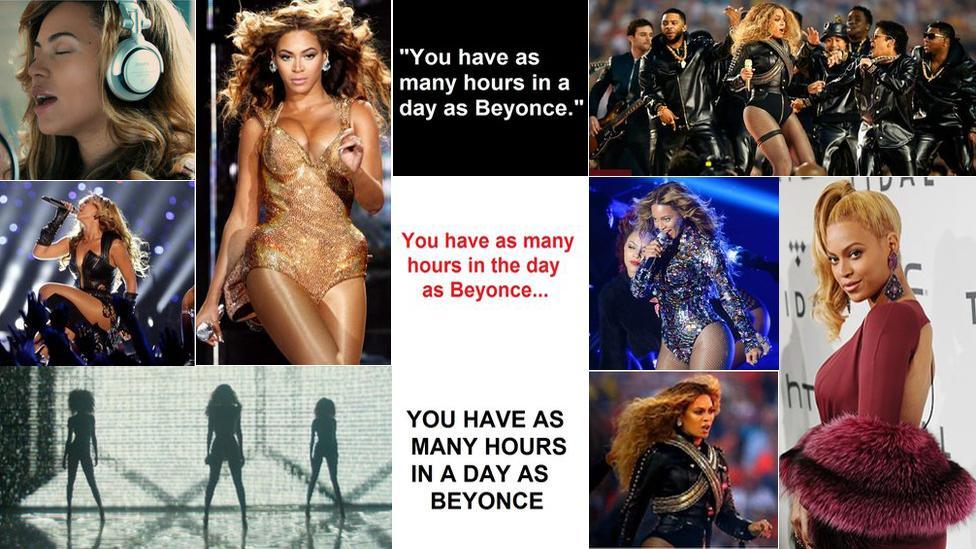
There is a meme doing the rounds challenging the use of your time, stating: "You have as many hours in a day as Beyonce". From doctors who are best-selling authors to Olympians studying astrophysics, is there anything we can learn from these over-achievers or are their brains wired differently?
Visit any website about Beyonce Knowles and a list of occupations confronts you - singer, songwriter, dancer, actor, charity founder, businesswoman, wife and mother.
She even, controversially, courted politics this year with her Superbowl performance referencing the civil rights movement.
All that, and she is only 34.
She may now reap the benefits of having a team to sort out the menial tasks of life, but she puts her success down to self-sacrifice and hard work., external
Someone else with determination is 30-year-old Stacie Powell. Originally from Bristol she now works for a finance firm in Boston, United States, but a few years ago she was "living a double life", juggling an Olympic diving career while studying astrophysics at Cambridge and Harvard Universities.

Stacie Powell started diving at the age of six and started competing internationally by the time she was 14
She said it was her desire for a medal that propelled her though the diving ranks to make her international debut at 14.
The "big time with all the cameras and spectators" came when she was 16 at the 2002 Commonwealth Games in Manchester, but she missed out on the 2004 Olympics and instead "knuckled down" on her A levels securing a place at Harvard studying astrophysics.
She believes another secret of her success is the ability to focus.
"When I'm not focusing on one thing I'm focusing on the other," she said. "I try to see that as a good thing. The reason why I love astrophysics is because it's a whole different world to diving.
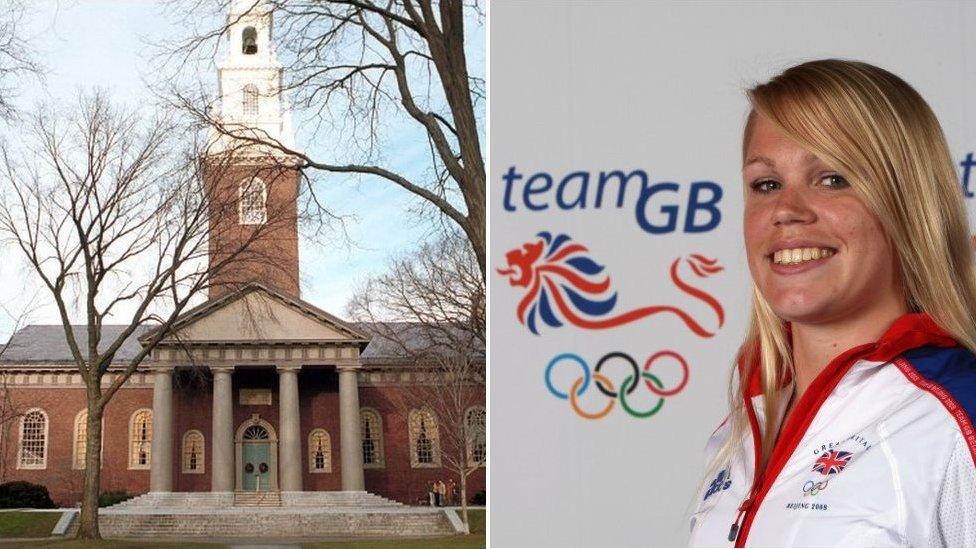
Stacie Powell's top tip: 'Compartmentalise: If you're going to be doing something do that and don't think of the million other tasks you've got to do that day.'
"They're such a contrast I felt like one is relaxing from the other."
The opportunity to study at Harvard came in 2008 - the same year as the Beijing Olympics.
"I got back from Beijing on the Monday, unpacked, repacked and moved to Boston on the Wednesday.
"I've found having short deadlines helped me. I knew I had to get something done by 15:00, and that helped me achieve the bigger picture.
"When I didn't have that discreet cut off I would take more time doing things. I would have one day off a week where I wouldn't dive and one when I didn't study."
Not only did she graduate with a PhD she also made it onto Team GB for the 2012 London Olympics.

Average day while studying at Harvard and training
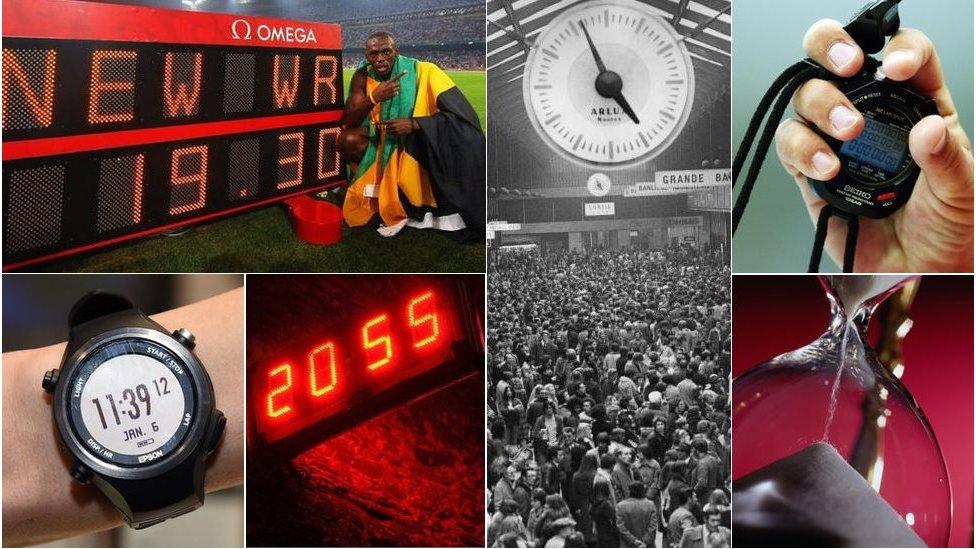
Athletes are especially conscious of working against the clock
06:00-08:00: Weight training
08:00-15:00: Start the working day. "It would be so nice to sit down and do my work".
15:00-18:00: "When I started to get a bit restless I'd do another session in the pool."
18:00-21:00: Back to the office

"You don't get to the top if you don't want to be there, but I think being able to compartmentalise is really important.
"If you're going to be doing something do that and don't think about the million other tasks you've got to do that day."
She had family on her side too and credits her "dedicated" parents for transporting her, admitting the lifestyle had an impact on her brother and sister - "they were in the car for an hour after school - not what they really wanted to be doing".
There are many people in the public sphere who achieve more than, perhaps, we realise. Mayor of London Boris Johnson is coming to the end of his second term, but 2015, his penultimate year, was prolific.

He was elected Conservative MP for Uxbridge and South Ruislip, released his 11th book The Churchill Factor and signed a deal, external for his 12th. He is also a husband and father.
Can we all hope to replicate this prolificacy?
According to Professor of Medicine at the University of Bristol, Stafford Lightman, some multi-taskers might actually have biology on their side.
"Everybody has slightly different connectivity in their brain and different parts are more effective than others," he said.
Someone with the ability to compartmentalise would "undoubtedly" achieve more.
"You can train your brain, within limits. Politicians train themselves to remember names. I'm useless at it - but if I really applied myself then sure, I'd be able to remember."
Part of improving compartmentalising, he said, is through the practice of recognising when you are veering off track and simply making yourself return to point.


What has Beyonce actually done?
Formed Destiny's Child before going solo. Acting credits include Dreamgirls
First African-American woman to win Pop Songwriter of the Year
Performed at President Barack Obama's 2008 and 2012 inaugurations and various Super Bowls
Runs clothing line House of Dereon and is in partnership with TopShop
First woman to reach No. 1 on the Billboard 200 with five albums
Co-owner of music streaming service Tidal, founded the Survivor Foundation for Hurricane Katrina victims and opened beauty school the Beyoncé Cosmetology Center
Sold over 178m records and has 20 Grammys' sitting on her mantelpiece
Sources: biography.com/Wikipedia

Another polymath who believes determination scoops ability is Jane Shemilt, from Bristol.
She has always had people vying for her attention, first the sick as their GP and now book lovers, following the success of her debut novel Daughter and her second The Drowning Lesson.
At first writing was a hobby, but then she took on a creative writing Masters and secured a publishing deal while also running a small family business, acting as her neurosurgeon husband's secretary and being a mother to her five adult children.

Jane Shemilt's top tip: 'Know it will happen but expect it to take a long-time. You don't have to feel you're not good at something because it takes a lot of time. It's worth doing it again and again until it's actually right.'
"I think if you can switch between your tasks it's as though you're using different muscles and it can be refreshing," she said.
"When working on Daughter it was the joy of putting my work bag away and going into another room to write... it was a little bit like going to heaven.
"It's the burn of achievement; it's the process. It connects me back to when I was a child and I would spend my whole weekend writing in the attic.
"You only really do things that you love."
But there is some fierce structure to Dr Shemilt's day and absolute dedication.
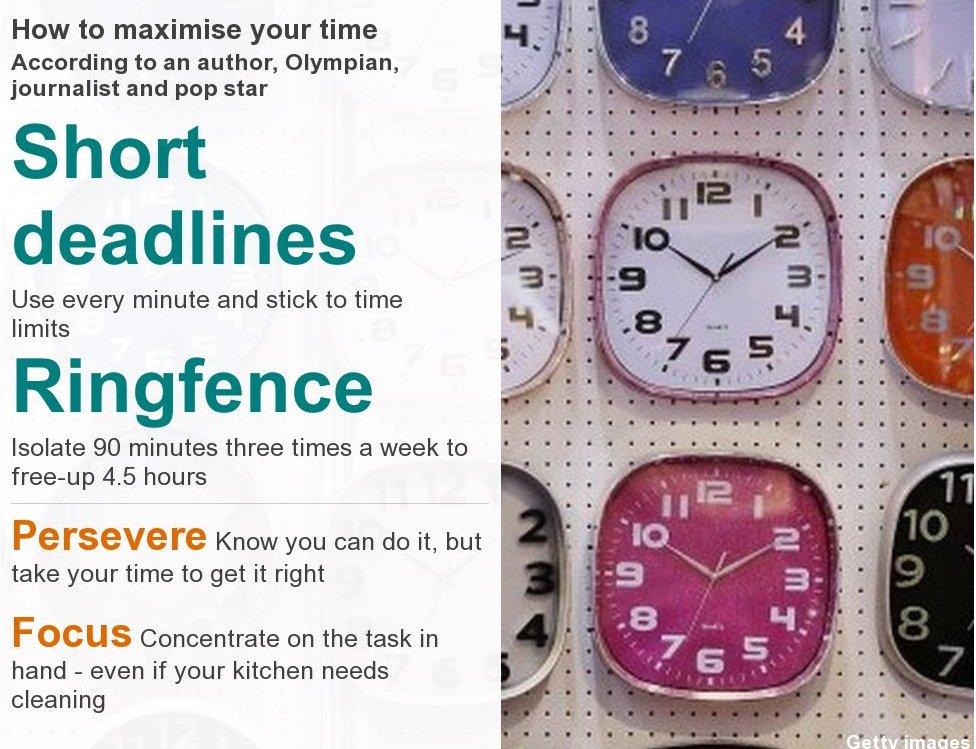
"At the end of The Drowning Lesson I was working 18 hours a day and getting into bed with my clothes on before rolling out again. It was like doing my medical exams all over again, although there's something quite joyous in that, but you couldn't keep going for ever."
Even though writing may be "joyous" success comes with sacrifice.
"At one stage I realised I was making a decision, I wouldn't have so much of a social life.
"I have a group of very close friends and they can bear with me and if I want to see them they'll come for a dog walk or something that was happening anyway. As for dinner parties or lengthy lunches, that doesn't happen much anymore because there doesn't seem to be so much time.
"Cooking is a constant negotiation with family members. We have online deliveries of food so that also saves a big chunk of time."
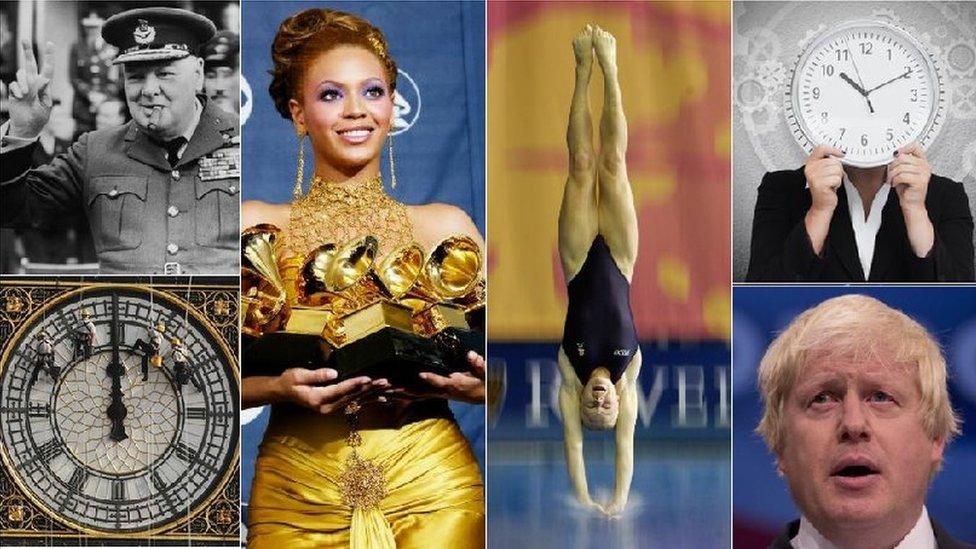
This pre-occupation with maximising 1,440 minutes a day is not just a whim of our fast-paced society.
In 1910 novelist Arnold Bennett released How to Live on 24 Hours a Day, instructing the Edwardians on how to extract an "extra" eight hours a week to pursue something "worthwhile".
He blamed a culture of seeing the hours either side of work as the "margins" and claimed most people only really used 16 hours a day to work and sleep. "I will defy you to account... for the other eight hours," he challenged.
He suggested ring-fencing 90 minutes every other evening and 30 minutes or more in the mornings to free-up time - easier said than done in the modern world, particularly if you are a commuter, shift-worker or parent.
He assures his reader "you will still be left with three evenings for friends, bridge, tennis, domestic scenes, odd reading, pipes, gardening, pottering and prize competitions".
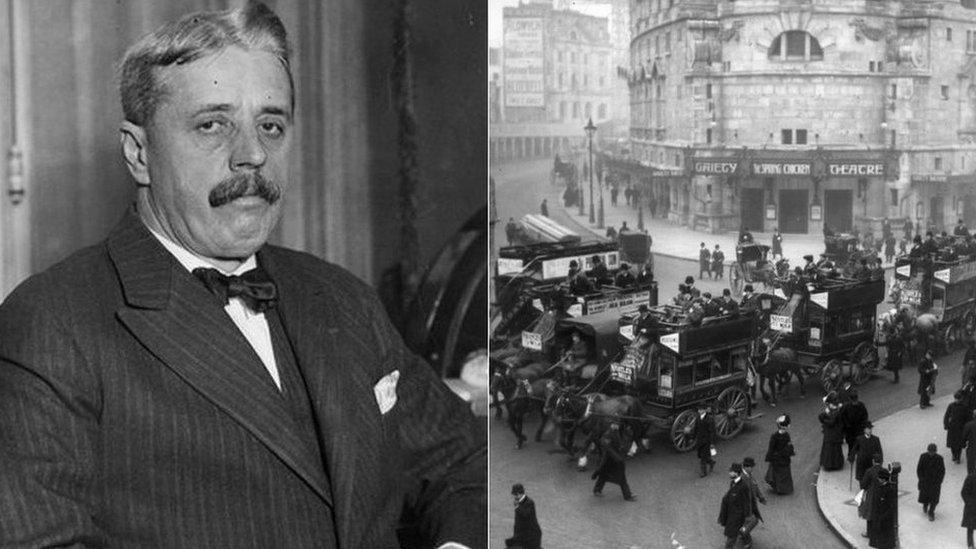
Arnold Bennett was a prominent figure during the reign of Edward VII and his death caused widespread mourning
He said sleep was a "matter of habit - and of slackness". Dr Shemilt said she was also known to steal from those dead hours.
"I borrow time from my sleep to read and when I take the dog for a walk we run," she says. "You can make yourself do a lot more than you often think you can."
But while some people may have the knack and desire to maximise their time, Mr Bennett concluded: "Genius is never rewarded by even an extra hour a day. And there is no punishment.
"Waste your infinitely precious commodity as much as you will and the supply will never be withheld from you."
- Published23 June 2014
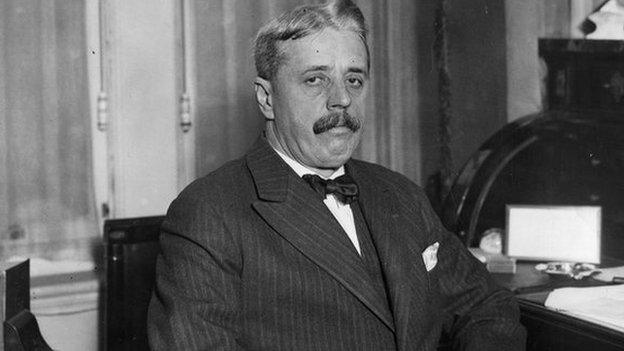
- Published1 March 2014

- Published22 December 2013

- Published23 July 2011